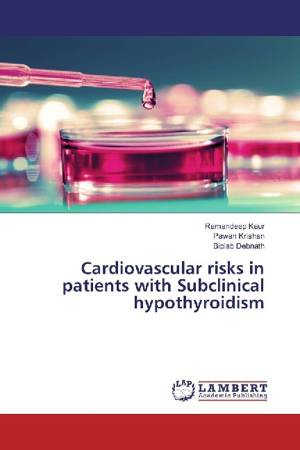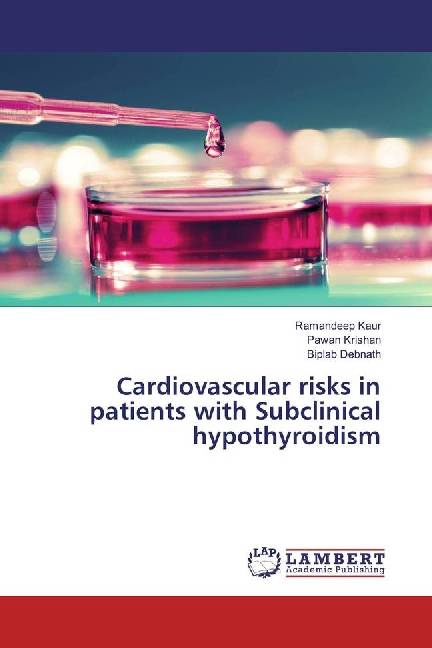
- Afhalen na 1 uur in een winkel met voorraad
- Gratis thuislevering in België vanaf € 30
- Ruim aanbod met 7 miljoen producten
- Afhalen na 1 uur in een winkel met voorraad
- Gratis thuislevering in België vanaf € 30
- Ruim aanbod met 7 miljoen producten
Zoeken
Cardiovascular risks in patients with Subclinical hypothyroidism
Ramandeep Kaur, Pawan Krishan, Biplab Debnath
Paperback | Engels
€ 35,45
+ 70 punten
Omschrijving
Subclinical Hypothyroidism (SCH) is an asymptomatic condition, diagnosed when peripheral thyroid hormone level are with in their normal laboratory reference range but serum thyroid stimulating hormone (TSH) levels are mildly elevated. It is more common in women than men, and its prevalence increases with age. Of patients with SCH, 80% have a serum TSH of less than 10 mIU/L. The most important implication of SCH is high likelihood of progression to clinical hypothyroidism and then to cardiovascular diseases. It has been associated with atherosclerotic cardiovascular disease even in the absence of hypercholesterolemia. The decision to treat SCH patients with Levothyroxine for restoring euthyroidism and improving cardiovascular risk should depend on the presence of risk factors, rather than on a TSH threshold. This study aims at determining the significance of early biochemical markers as effective tool for the detection of early cardiovascular risk in subclinical hypothyroid patients.
Specificaties
Betrokkenen
- Auteur(s):
- Uitgeverij:
Inhoud
- Aantal bladzijden:
- 80
- Taal:
- Engels
Eigenschappen
- Productcode (EAN):
- 9783659922213
- Uitvoering:
- Paperback
- Afmetingen:
- 150 mm x 220 mm

Alleen bij Standaard Boekhandel
+ 70 punten op je klantenkaart van Standaard Boekhandel
Beoordelingen
We publiceren alleen reviews die voldoen aan de voorwaarden voor reviews. Bekijk onze voorwaarden voor reviews.











